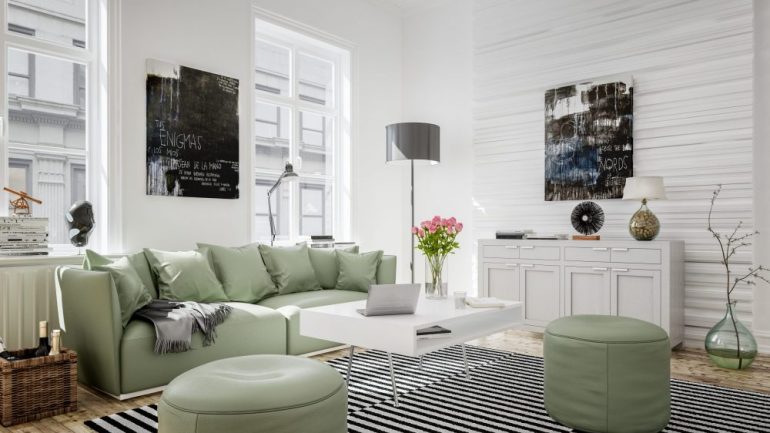Will it improve your marketability and profit to furnish your rental property? The scenarios vary depending on how the property is used. Let’s see when it makes sense and when it doesn’t.
Basics are expected
No matter what your target market, it is commonplace for rental properties to come furnished with appliances such as a refrigerator, stove, oven, dishwasher and perhaps a microwave oven. A clothes washer and dryer are a plus, but not usually expected. These items should be of sufficient quality to withstand significant use.
Whether you should provide beds, dining tables, a television and other entertainment equipment, sofas and more depends on which rental market you are targeting.
Who is your market?
The location of your property and the nature of your customer are important considerations in deciding whether to furnish a rental.
In some cases, a fully furnished property is a must. If you own a rental in a popular tourist destination and your renters are short-term, a fully furnished property is expected. Full furnishings also are expected by corporate clients that need an executive rental for relocating employees who aren’t ready to move their entire households to the community. If your property is near a college or university, you could offer an either/or option to appeal to students and young adults with or without their own furniture.
Furnishing your rental is less important if you’re seeking long-term tenants in neighborhoods that appeal to couples or families. These renters are more likely to have their own furnishings.
Running the numbers
It’s important to determine whether you can furnish a rental profitably.
The furnishings you provide must be nice enough to be pleasing and sturdy enough to last. On the other hand, you’ll lose money if they’re so expensive that you cannot charge enough rent to recover your cost in a reasonable time.
Remember that the furnishings you provide will experience wear and tear. With college rentals, expect outright breakage. To protect yourself against loss of value, include language in the rental contract stipulating that the deposit covers damage to both the dwelling and any furnishings. You may be able to write off depreciation for normal wear and tear to your furnishings on your taxes.
Some renters may decline your furnishings. Try to charge sufficient rent to cover storage costs in this event.
Related – Should You Manage Your Rental Or Leave It to the Pros?


